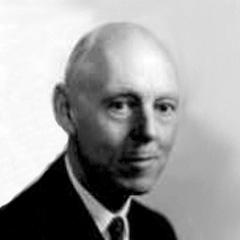ISA Past Presidents
Robert C. Angell

President 1953-56
1899 | 1984
Nationality American
His papers are available in the University of Michigan's Michigan Historical Collection, Bentley Historical Library.
Biography
Education
- 1921 BA, University of Michigan.
- 1922 MA, University of Michigan.
- 1924 PhD, University of Michigan (Thesis title, ‘The student mind’; supervisor, Charles Horton Cooley.)
Posts held
- 1922 Instructor, University of Michigan.
- 1924 Assistant professor, University of Michigan.
- 1930 Associate professor, University of Michigan.
- 1935-- Professor, University of Michigan. [1941-5, military service]
ISA participation, main roles
- 1952-53, 1956-5, EC member.
- 1953-56, President.
- 1962 Chair, Organising Committee, Fifth World Congress. (Washington)
Participation in other associations
- American Sociological Association (Vice-President, 1948, President 1951).
- 1946-4 Editor, American Sociological Review.
- 1949-50 Acting Head, UNESCO - Social Science Department [SSD], Paris, and director of its project ‘Tensions Affecting International Understanding’.
- 1951-56, Member of US National Commission for UNESCO.
Intellectual and ISA career
Angell describes his family as ‘well-educated, stable religious and affectionate’ (Angell 1980: 72), and voting Republican; he also mentions that his father and brother went to law school. Clearly this was a solidly conventional middle-class background. The C. in Angell’s name stands for Cooley; Charles Horton Cooley, the distinguished Michigan sociologist, was his uncle as well as his mentor, and Angell spent his whole academic career on the Michigan staff. However, he certainly cannot be described simply as his uncle’s follower, though he started his career as a local with an emphasis on social psychology, only gradually becoming more cosmopolitan and interested in macro features of society – and still likely to approach them from a social-psychological angle.
The substantive topics that he studied varied strikingly, ranging from student life (Angell 1928) to international conflict. Along the way, his political views now Democratic, the Great Depression made him politically more active, and he used analytical induction on the case histories by students of their families to investigate the effects of the Depression on American families (Angell 1936).[1] Rather than specialising in any one substantive topic area, he formed a commitment to a special focus on social integration, in whatever context.
Survey methods were not his style, but as head of department he was responsible for bringing in the survey specialists who established the Institute for Social Research and the Detroit Area Study, and after the war he used large-scale sets of available statistics as data for work on the moral integration of cities. Towards the end of World War II he started thinking of what sociologists could do to promote lasting peace. The central concern of UNESCO’s SSD was to bring the resources of the social sciences into the service of world peace, so his commitments fitted in very well there.
When Wirth died suddenly and unexpectedly, Angell was co-opted to the ISA executive in order to become president. It was clearly agreed among those at the centre in those early days that an American was highly desirable, and Angell was well suited to the role. He could get by in French and German, the year spent in Paris had made him acquainted with such ISA activists as Georges Davy, Raymond Aron, T. H. Marshall and René König, all officers then or later; his recent presidency of the ASA made it clear that he was well respected at home, while his SSD experience had made him and UNESCO familiar with each other, and his interests in peace, disarmament and the resolution of conflicts[2] meshed with current UNESCO focuses.[3]
At the 1956 World Congress in Amsterdam he did not give a presidential address, but he gave a paper introducing a session on social change (Angell 1956) which developed ideas about the promotion of social integration at a national level. He concludes that international social integration is much harder but urgently needed; here steps towards globalisation are seen as the problem as much as the solution. The ISA is perhaps making a small contribution to ‘weaving a world moral web’, but cannot do more until the day – which will come – when its theories and methods are more developed and its influence increased.[4] His later work - see, for instance, Angell 1966 – continued to aim for this goal.
References, other sources of information, related work
- Angell, Robert C. (1928) The Campus, a Study of Contemporary Undergraduate Life in the American University.
- Angell, Robert C. (1936) The Family Encounters the Depression.
- Angell, Robert C. (1951a) The Moral Integration of American Cities.
- Angell, Robert C. (1951b) ‘Sociology and the World Crisis’, American Sociological Review 16: 749-757). [ASA presidential address]
- Angell, Robert C. (1956) ‘The moral web in social change’, Transactions of the Third World Congress of Sociology vol. 6: 1-11.
- Angell, Robert C. (1966) ‘The Sociology of International Relations: A Trend Report and Bibliography’ Current Sociology 14.1.
- Angell, Robert C. (1980) ‘The joys of modest success’, Society 18.1: 72-81.
- Ness, Gayle D. (1985) ‘Robert Cooley Angell, 1899-1984’, ASA Footnotes 13.5: 10.
- Platt, Jennifer (1992) ‘The SSRC's 1940s restudy of Robert Angell's cases from The Family Encounters the Depression’, Journal for the History of the Behavioral Sciences 28: 143-157.
Presidential address
none given – but see above.
[1] Later he revisited the data to take part in a methodological experiment planned by Ernest Burgess (Platt 1992).
[2] He was a founder of the Journal for Conflict Resolution in 1954.
[3] He speculated (Angell 1980: 79) that he was chosen because it was thought that his SSD connection would help to maintain the subsidy without which the ISA would have collapsed; however, there is no specific evidence of that in the ISA archives.
[4] In his ASA presidential address (1951b) he suggested a role for sociology in research comparing the attitudes of groups which had and had not been exposed to internationalist propaganda, or taken part in international NGOs. The somewhat social-psychological approach is typical of US sociology at that period.
